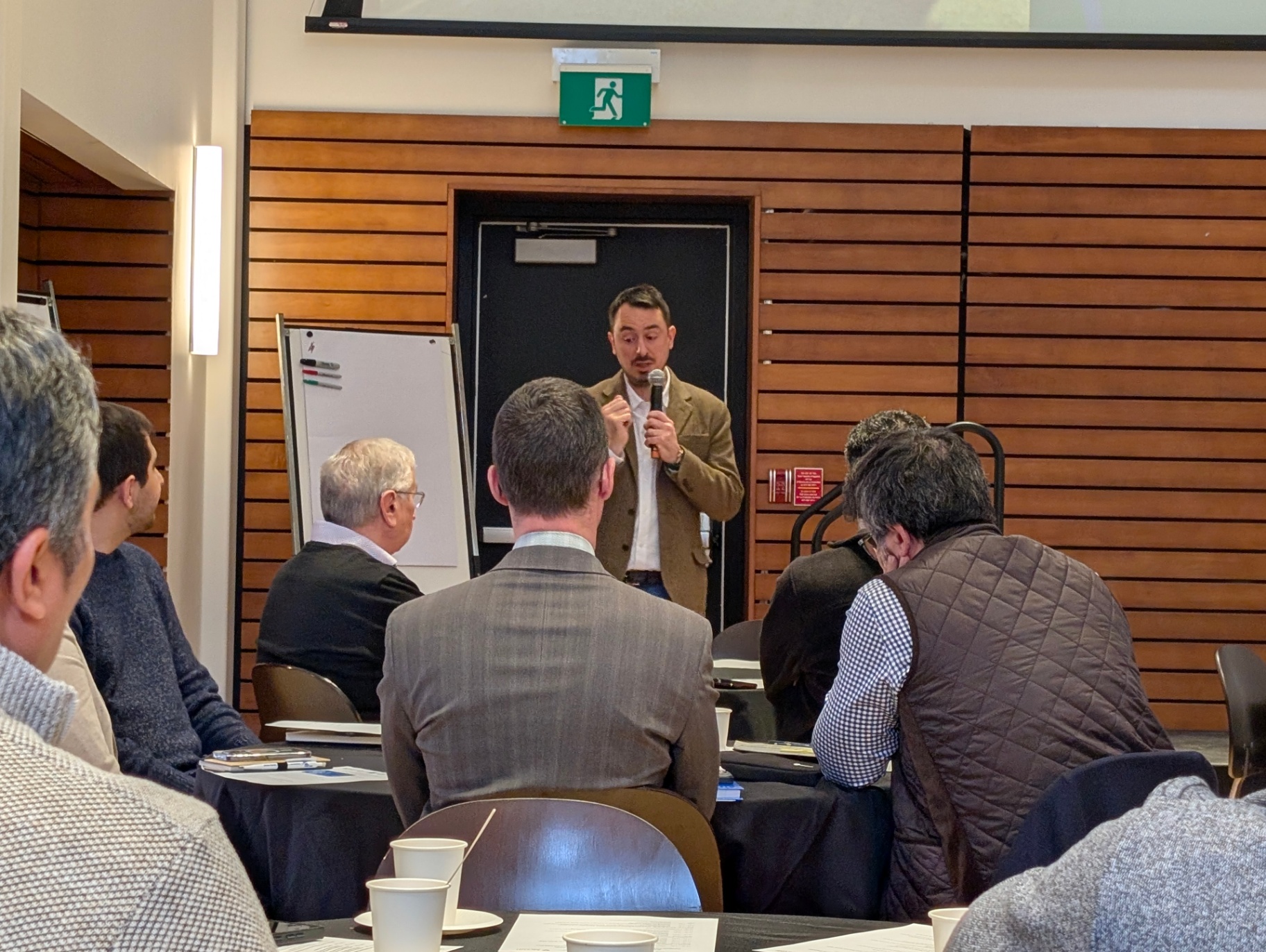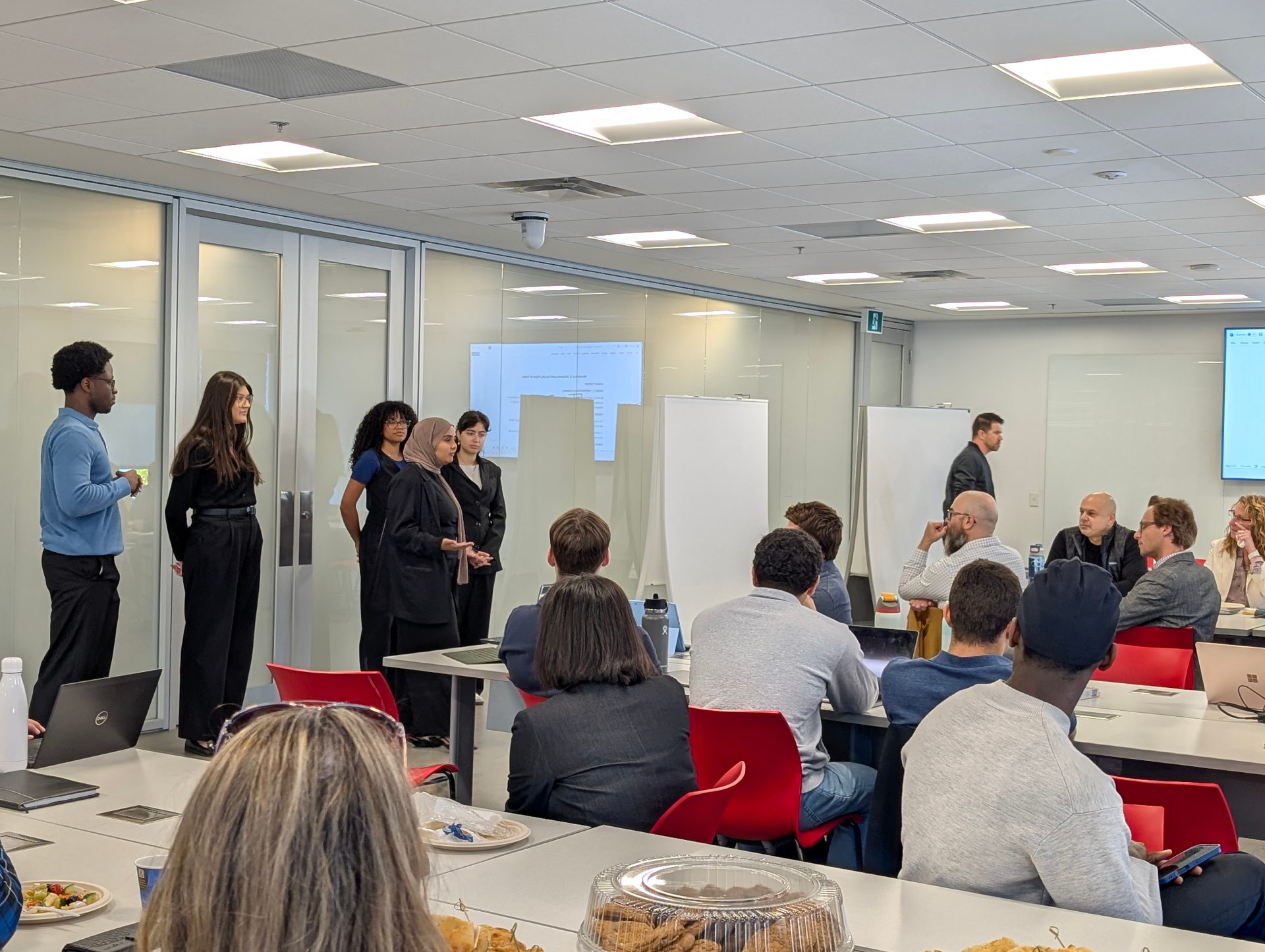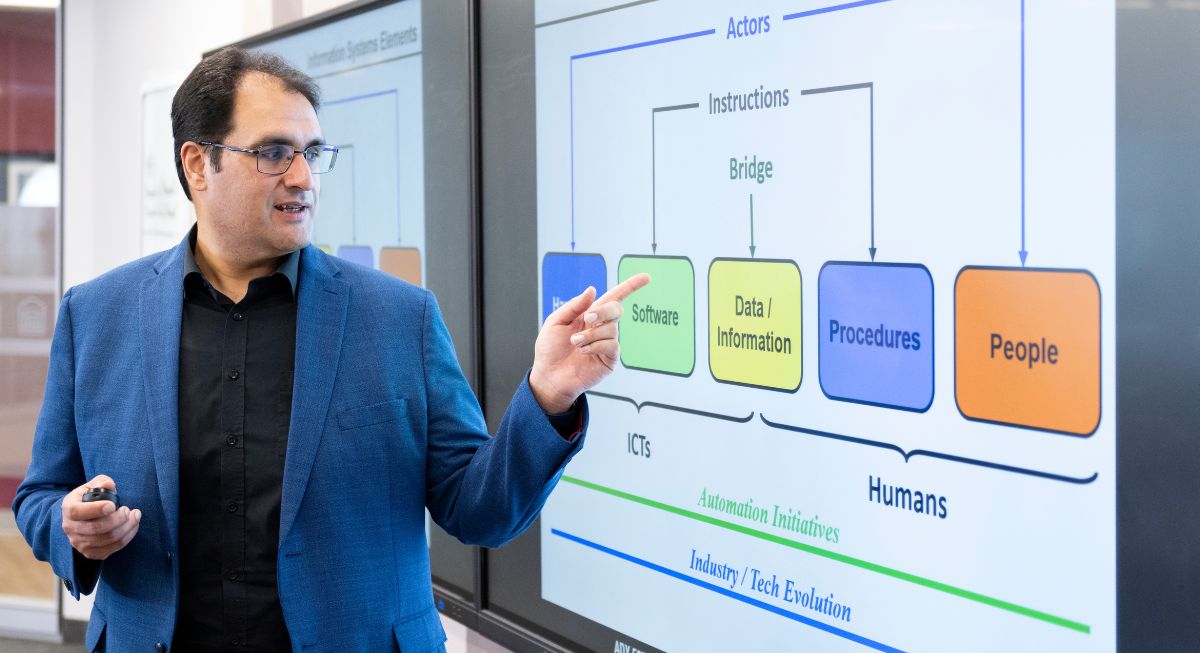Two researchers at the Telfer School of Management will address the financial implications of corporate use of water resources.
For many firms, water is a key factor in the production of goods and services. However, as water availability and quality continue to decline, investors, creditors, and regulators have begun to place greater pressure on firms to disclose how they manage water resources, how their practices impact their businesses, and how these firms mitigate risks related to corporate use of water.

"Some of these risks include water scarcity, water pollution, droughts, and floods. If firms are not prepared to navigate these challenges, they can face a variety of business risks that could make their operation challenging,” explains Professor Mohamed Chelli.
However, very little is known about the impact of corporate use of water resources across firms, industries, and countries. Do firms pay a very high price for poorly managing water resources?
What’s this research about?
To answer this question, Professors Mohamed Chelli and Walid Ben Amar will examine the impact of corporate management and disclosure of water on market value and the implied cost of equity capital. The researchers have been awarded an Insight Development Grant by the Social Sciences and Humanities Research Council.
Who gains?
Insights gained from this research project will contribute to the timely debate in accounting research that focuses on climate change and corporate responsibility.
Moreover, by better understanding the impact of risks associated with how firms use water resources, Professors Chelli and Ben Amar will provide relevant evidence to support investors, policymakers, and regulators in their efforts to improve corporate transparency.
Ultimately, these research insights can help firms make better and more sustainable decisions.
Update on the subject
March 2021
Water shortage and quality deterioration expose businesses in the private sector to material water-related risks with significant financial and operational implications to the company and its supply chain. The 2020 CDP Global water report has revealed that the costs of inaction are much higher than required resources to address these material risks.
While stakeholders and investors request decision-useful water-related information, several companies are still not reporting about their exposure to water challenges and opportunities. In a cross-country comparative study, we find that voluntary water-related disclosures to the CDP differ across industries, national cultures and country legal regime. Our findings highlight the urgent need for increased pressure to improve corporate water-related communication. We also call for regulatory actions to standardize and enhance the comparability of water-related information across countries. The lack of consistent and quantifiable data about corporate exposure to material water-related risks hinder investors’ ability to effectively allocate capital to companies taking proactive actions towards a water-resilient economy. Our ongoing research investigates the financial impacts of water transparency and effective water-related risk management practices.
The Telfer School of Management is committed to developing cutting-edge research in a variety of topics in management. As our faculty continues fostering research excellence, the Telfer School community and partners also benefit from valuable insights with impact. Find out how to apply for a SSHRC Insight Development Grant.









